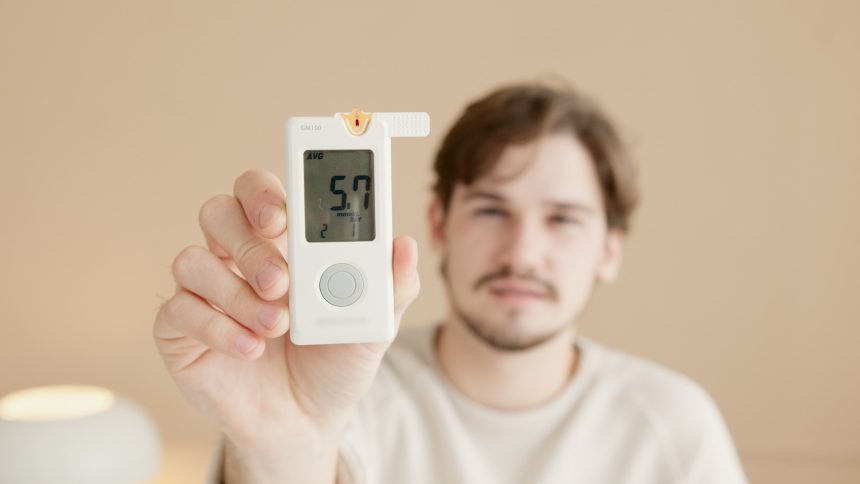It is estimated that one in ten Americans has diabetes. Many of those people have yet to be diagnosed with the disease. Without proper care, diabetes can lead to a plethora of health issues. One of the more serious issues is diabetic macular edema.
What is Diabetic Macular Edema?
Diabetic Macular Edema, or DME, is a condition individual with both type-one and type-two diabetes may face in their lifetime. Individuals with diabetes must understand this issue and learn how to get treatment. DME AND ME is an education publication that provides an excellent guide for those with diabetes and provides the information they need about DME.
DME is a diabetic complication that many patients will face throughout their lifetime. It is described as the accumulation of fluid in the macula. The macula is the central part of the retina that is responsible for an individual’s sharp vision. When the fluid accumulates, it can cause damage to this area and cause vision loss.
What is the Cause of DME?
Ultimately, uncontrolled diabetes is the cause of DME. In both diabetes type-one and type-two diabetes, if blood sugar levels are uncontrolled, several issues can occur throughout the body. Prolonged high blood sugar levels will damage the small blood vessels throughout the body. When the small blood vessels in the retina are involved, it is considered diabetic retinopathy.
Diabetic retinopathy results in damage to the retina and vision impairment. When the issue is left untreated, fluid can leak from these damaged blood vessels and accumulate in the center of the retina or the macula. Although DME can occur at any stage of diabetic retinopathy, it is more often to occur as the disease progresses.
If DME is not treated or blood sugar levels are left uncontrolled, the condition can become worse. Some patients will experience impaired or lost vision. It could also put a patient at risk for retinal detachment or even blindness.
How Does DME Affect Vision?
The macula is the center portion of the retina. This area contains a high concentration of cells that detect light. The macula is responsible for the straight-ahead vision and provides the sharpest and clearest vision. In contrast to peripheral vision, the vision received from the macula is focused and clear.
When DME occurs, pressure is put on the macula that diminishes a person’s vision. Sight can become blurry or even seem wavy. As the disease progresses, individuals may have difficulties reading or focusing on objects.
Over time, the individual may begin seeing floaters or experience a sudden burst of floaters in their vision. These floaters may be due to fluid leakage into the eye or even retinal detachment. Eventually, if treatment is not sought, DME could cause blindness.
Early Signs of DME
Unfortunately, without regular visits to an eye care professional, it is impossible to identify DME early. Most patients do not have any early symptoms. By the time symptoms develop, the damage has already occurred. However, patients need to be aware of the early signs of damage. If any of these vision symptoms occur, individuals need an exam to rule out other causes.
Some of the earliest symptoms included difficulty reading, blurred or distorted vision, or uneven eye pressure. Unfortunately, many people dismiss these symptoms as eye strain or needing a new prescription for their eyeglasses. Even with such minor issues, a visit to the eye doctor should be scheduled.
Further symptoms of DME could include spots or floaters in the patient’s vision. A shadow that obstructs a portion of the field of vision is also a possible sign of DME. Some individuals may even have difficulties with their color perception.
Individuals need to understand that any changes in their vision are serious. Even minor vision changes need to be addressed as soon as possible. Postponing treatment could cause these issues to be permanent or to become worse.
How is DME Diagnosed?
An exam by an eye care professional is the best option for diagnosing DME. During the exam, the eye care provider will administer a few drops of medication in each eye. This medication will cause the pupils to dilate so that the eye care professional can see inside the eye.
The eye care professional will look for any swelling in the retina that may threaten vision. They will also look for evidence of retinal ischemia. Retinal ischemia is poor retinal blood vessel circulation. They may also find abnormal blood vessels. These blood vessels could predict an increased risk of developing new blood vessels that could impact vision.
The professional will also look at the surface of the retina to see if there are new blood vessels or scar tissue. If any of these issues are found, they may perform more advanced tests to detect the severity of diabetic retinopathy.
How is DME Treated?
Treatment for DME is largely determined by the severity of the disease. However, the success of any treatment is influenced by proper control of diabetes. Patients should meet with their primary care provider to find options to keep their blood sugar levels controlled.
Some medications block the development of new blood vessels as well as limit the leakage from abnormal blood vessels. An ophthalmologist or retinal specialist will provide these medications through regular injections directly into the eye. Several injections are needed to treat the issue. The treatment provided is determined by the physician based on the severity of the condition.
The patient may also require injections of steroids into the eye. There are also injectable steroid eye implants available to provide a steady release of the medication in the eye. Steroids will help reduce the edema within the eye.
Laser surgery may also be necessary to treat DME. The laser is used to close and destroy leaking blood vessels. Although this treatment may cause permanent blind spots for the patient, it will slow or even stop the progression of the disease.
How to Prevent DME
The best method for preventing DME is to maintain a healthy lifestyle. A healthy lifestyle includes a balanced diet, regular exercise, and avoiding drugs and alcohol. Diabetic patients must also be proactive in maintaining good blood sugar levels and keeping their blood pressure and cholesterol at healthy levels.
Early detection is a great way to prevent vision loss. Every person with diabetes and those over 50 should have a complete eye examination with dilation at least once a year.














